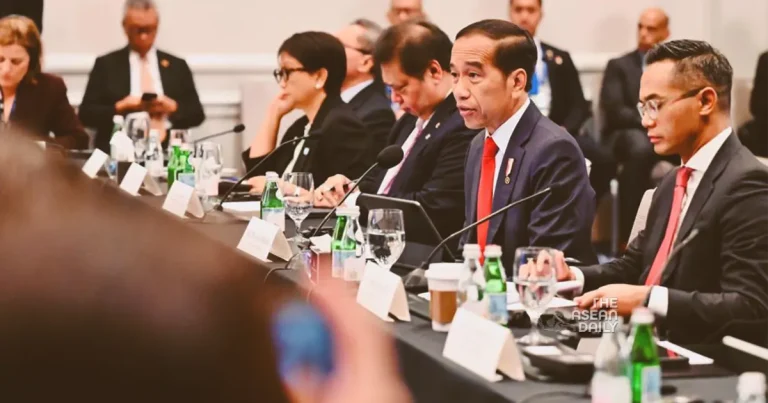President Joko Widodo, commonly known as Jokowi, identified three pivotal areas of cooperation, with a particular emphasis on energy transition, to be the central focus of the ASEAN Caucus within the Asia-Pacific Economic Cooperation (APEC) Business Advisory Council (ABAC).
Addressing the ABAC ASEAN Caucus Day in San Francisco on Wednesday, Jokowi outlined the first focus as the acceleration of energy transition. This includes the commitment of ASEAN to establish itself as a global hub for the electric vehicle industry. Jokowi highlighted the potential of the ASEAN Caucus to play a crucial role in strengthening this initiative, considering the imperative of investment and technology support for energy transition, wherein the Indo-Pacific Impact Fund initiative could prove significant.
The second focus highlighted by the President is the attainment of carbon neutrality. Jokowi emphasized the need for economic growth to align with ASEAN’s commitment to environmental preservation. ASEAN has formulated a strategy for carbon neutrality, and Indonesia, under Jokowi’s leadership, aims to achieve net-zero emissions by 2060. Concrete cooperation between the government and business sectors, facilitated by the ASEAN Caucus, is considered instrumental in reaching this target.
President Jokowi encouraged the active involvement of the ASEAN Caucus in supporting ASEAN’s commitment to expedite the implementation of cross-border digital payments through collaborative efforts between financial institutions. He expressed confidence in the ASEAN Caucus’s potential to contribute significantly to this initiative.
The establishment of the ASEAN Caucus is welcomed by President Jokowi, envisioning it as a means to strengthen ASEAN’s centrality within the ABAC. The ASEAN Caucus is anticipated to fortify the government-business partnership, and Jokowi underscored that ASEAN, as a strategic region with robust capital, has the potential to emerge as a global growth center. He highlighted ASEAN’s economic growth surpassing the world average, a substantial young population, and sustained regional stability as critical assets that amplify ASEAN’s influence in various forums, including APEC.




